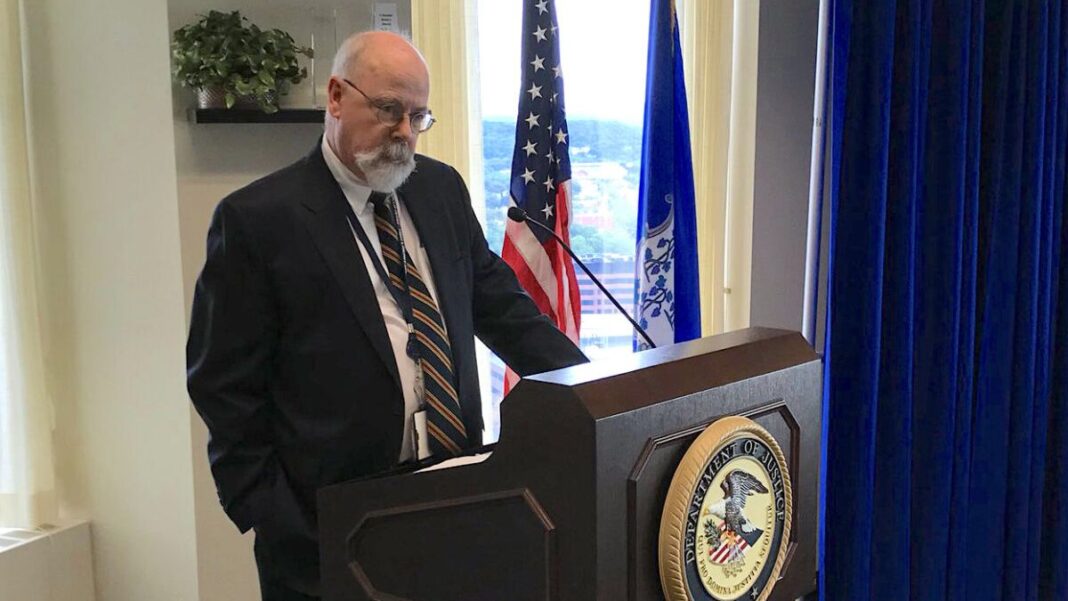
Special counsel John Durham filed court papers on May 10 saying that the FBI and U.S. intelligence agencies are slowly producing documents related to his case against Igor Danchenko, who prosecutors say lied to investigators about how he obtained information that later appeared in the controversial and discredited Steele dossier that was used against former President Donald Trump.
Durham asked U.S. District Judge Anthony Trenga (pdf) to set a new deadline for June 13, from May 13, to turn over classified materials to Danchenko’s attorneys. So far, most of the classified documents have been handed over to Danchenko’s lawyers, although Durham said that “recent world events continue to contribute to delays in the processing and production of classified discovery,” possibly referring to the Ukraine–Russia conflict.
“In particular, some of the officials preparing and reviewing the documents at the FBI and intelligence agencies continue to be heavily engaged in matters related to overseas activities,” Durham wrote in the filing, adding that his team is “continuing to press the relevant authorities to produce documents in classified discovery as quickly as possible and on a rolling basis, and no later than the proposed deadline set forth below.”
Danchenko, a Russian analyst, was indicted in November 2021 for lying to the FBI as it was investigating the alleged Trump–Russia collusion probe. Namely, he’s accused of misleading FBI officials regarding the sources of information that he provided to former UK intelligence agency Christopher Steele as he was interviewed several times by bureau officials in 2017 while the agency was attempting to corroborate allegations in the Steele dossier.
Steele himself was hired by opposition research firm Fusion GPS to look into claims that were made against Trump and members of his campaign in 2016. Fusion GPS was retained by Democratic Party-aligned law firm Perkins Coie, which was working for the Clinton campaign.
Collectively known as the Steele dossier, the former UK spy wrote notes and documents that asserted Trump had ties to Russian intelligence officials to defeat then-candidate Hillary Clinton in 2016. However, numerous claims in Steele’s work were false, triggering congressional, criminal, and inspector general investigations.
Trump has said the claims were part of a longstanding witch hunt to denigrate his administration and reelection campaign.






